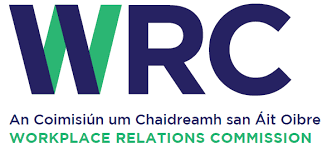One of Ireland’s leading charities was ordered to pay €7,000 in compensation to a former
employee recently. The Workplace Relations Commission found the charity in violation of the
Employment Equality Act 1998, ruling it had discriminated against the employee, who has
dyslexia, by failing to provide her with reasonable workplace accommodations. The
employee argued that these accommodations would have enabled her to perform her job
effectively, and the charity’s failure to implement them led to an unfair probation review and
ultimately her dismissal.
Employee’s Request for Accommodations
The employee had specifically requested the installation of Grammarly, a free app that helps
with spelling and grammar, on her work computer. Although the charity assured her it would
be installed, months passed before it was provided, which she found particularly challenging
due to her dyslexia. Additionally, she requested that meeting discussions be documented to
reduce ambiguity, as she sometimes struggled to process verbal information. She made this
request in February 2023 but reported that no minutes were taken until her probation was
nearly concluded.
The charity denied that it failed to accommodate the employee’s needs, claiming she was
dismissed due to performance issues unrelated to her dyslexia. The charity contended that it
did not become aware of her request for Grammarly until her mid-term probation review, at
which point the software was installed.
Claims of Discrimination and Workplace Inconsistencies
The complainant, who was employed as a youth and community engagement worker on a
12-month contract, described her experience at the charity as one where she was
“discriminated against” due to her disability. Her employment was terminated in March 2023,
after just over five months. She noted that her requests had no significant cost implications
and were simple to implement. Her evidence suggested that her manager may have decided
to end her employment prematurely, as he agreed to provide meeting minutes only weeks
before her termination. It was highlighted that other employees with health-related needs
were accommodated, which she believed indicated an inconsistency in treatment.
WRC’s Decision and Implications
After reviewing the case, WRC adjudicator found that the complainant had presented a
strong prima facie case of discrimination based on her disability. Ms. Boyle observed that the
charity’s failure to provide promised accommodations in a timely manner negatively
impacted the employee’s ability to perform her duties. The adjudicator further noted the
charity’s lack of a clear rationale for terminating Ms. Gorrell’s employment immediately
following her renewed accommodation requests in early 2023. This lack of transparency
contributed to the WRC’s decision to rule in favour of the complainant awarding her €7,000
in compensation.
This case underscores the importance of timely and consistent support for employees with
disabilities and highlights the necessity of maintaining transparent and fair performance
evaluation processes.



